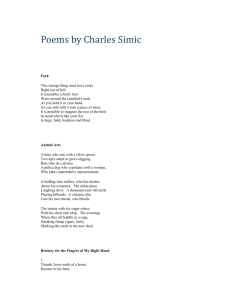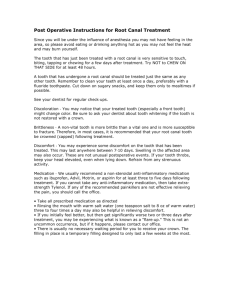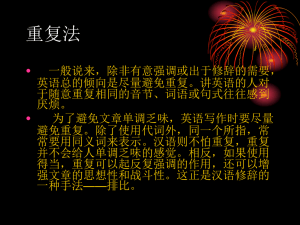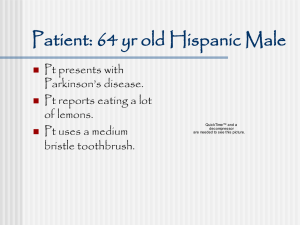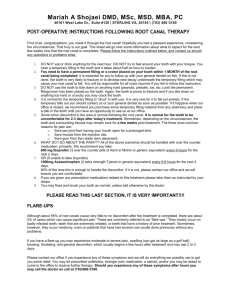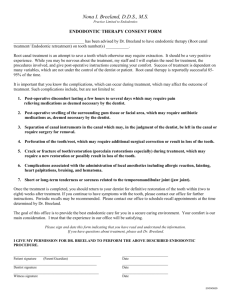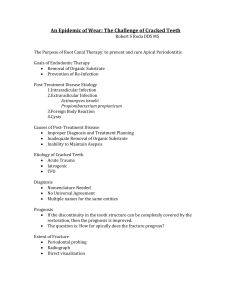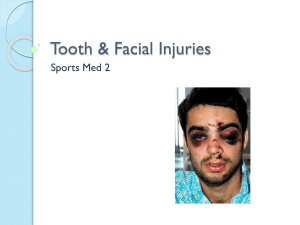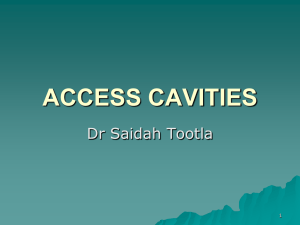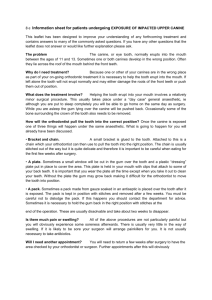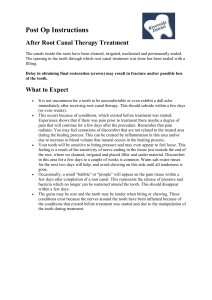Root Canal Treatment Post Operative Instructions
advertisement
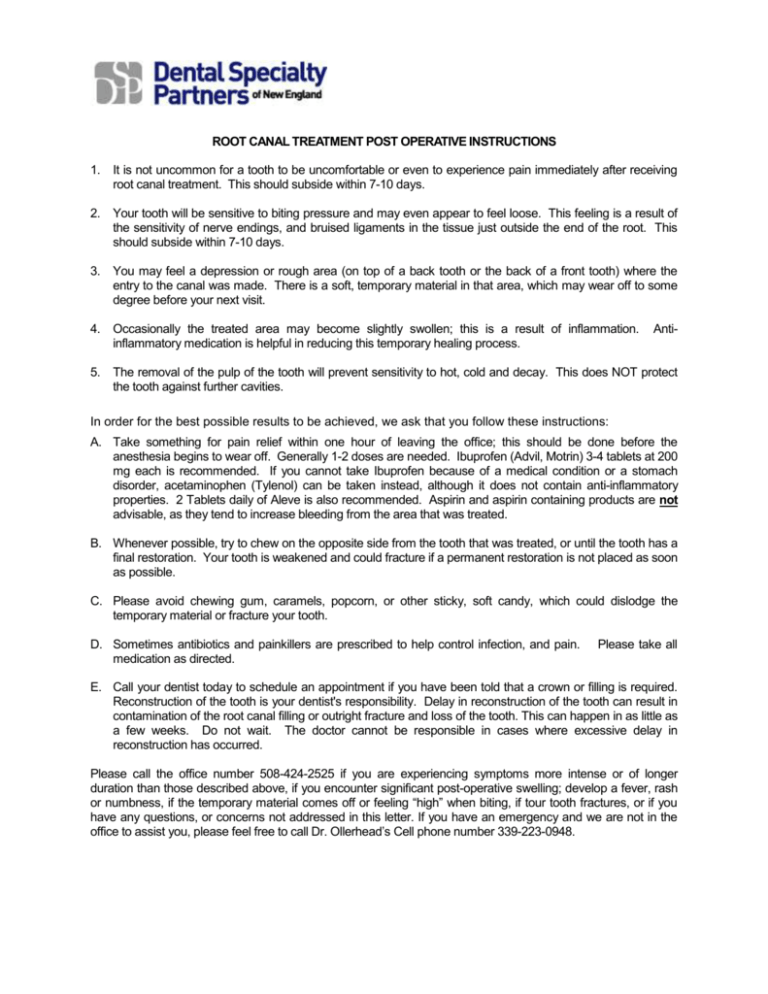
ROOT CANAL TREATMENT POST OPERATIVE INSTRUCTIONS 1. It is not uncommon for a tooth to be uncomfortable or even to experience pain immediately after receiving root canal treatment. This should subside within 7-10 days. 2. Your tooth will be sensitive to biting pressure and may even appear to feel loose. This feeling is a result of the sensitivity of nerve endings, and bruised ligaments in the tissue just outside the end of the root. This should subside within 7-10 days. 3. You may feel a depression or rough area (on top of a back tooth or the back of a front tooth) where the entry to the canal was made. There is a soft, temporary material in that area, which may wear off to some degree before your next visit. 4. Occasionally the treated area may become slightly swollen; this is a result of inflammation. inflammatory medication is helpful in reducing this temporary healing process. Anti- 5. The removal of the pulp of the tooth will prevent sensitivity to hot, cold and decay. This does NOT protect the tooth against further cavities. In order for the best possible results to be achieved, we ask that you follow these instructions: A. Take something for pain relief within one hour of leaving the office; this should be done before the anesthesia begins to wear off. Generally 1-2 doses are needed. Ibuprofen (Advil, Motrin) 3-4 tablets at 200 mg each is recommended. If you cannot take Ibuprofen because of a medical condition or a stomach disorder, acetaminophen (Tylenol) can be taken instead, although it does not contain anti-inflammatory properties. 2 Tablets daily of Aleve is also recommended. Aspirin and aspirin containing products are not advisable, as they tend to increase bleeding from the area that was treated. B. Whenever possible, try to chew on the opposite side from the tooth that was treated, or until the tooth has a final restoration. Your tooth is weakened and could fracture if a permanent restoration is not placed as soon as possible. C. Please avoid chewing gum, caramels, popcorn, or other sticky, soft candy, which could dislodge the temporary material or fracture your tooth. D. Sometimes antibiotics and painkillers are prescribed to help control infection, and pain. medication as directed. Please take all E. Call your dentist today to schedule an appointment if you have been told that a crown or filling is required. Reconstruction of the tooth is your dentist's responsibility. Delay in reconstruction of the tooth can result in contamination of the root canal filling or outright fracture and loss of the tooth. This can happen in as little as a few weeks. Do not wait. The doctor cannot be responsible in cases where excessive delay in reconstruction has occurred. Please call the office number 508-424-2525 if you are experiencing symptoms more intense or of longer duration than those described above, if you encounter significant post-operative swelling; develop a fever, rash or numbness, if the temporary material comes off or feeling “high” when biting, if tour tooth fractures, or if you have any questions, or concerns not addressed in this letter. If you have an emergency and we are not in the office to assist you, please feel free to call Dr. Ollerhead’s Cell phone number 339-223-0948.
